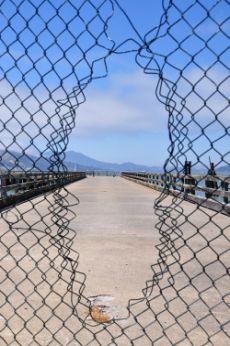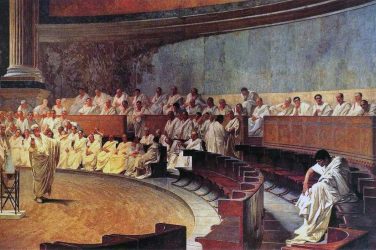This ramping disease does not know borders nor mountains and can adapt to any climate. Fences, restrictions and quotas are powerless in front of the Schizophrenia Putina’s ravages, as it uses its victims’ own weaknesses to infiltrate their brains. Hidden in a Trojan horse made out of liberalism, the virus spreads throughout the continent’s broadband and affects users one by one, “like” by “like”, “share” by “share”.Have you noticed the spread of an epidemic in Central Europe these days? No, not this so-called “Islamisation” right-wing extremists are heralding, but rather a new type of schizophrenia coming from the East. The cold East, not the Middle East. Straight (sic) from Russia, this Schizophrenia Putina bears the name of its inventor and first victim, Tsar Vladimir Putin.

The symptoms are easy to recognise: the infected individual will start reposting articles explaining that the European Union is an American conspiracy to help the Wall Street Jews control the world using Muslim refugees, and he/she will take on spitting venom in all comments sections. As a miracle solution, surprise-surprise, the “zombie” usually hails the source of the epidemic, Russia, and its master, Putin.
The patient might thus believe that the European Union is crumbling whereas the Eurasian Union is arising, that the euro is doomed while the rouble is thriving, that Russia is defending itself while annexing and occupying foreign territories, that European values are chauvinism and intolerance, that captivity is freedom and that war is peace.
A new “logic” is developing in the patient’s head, first crushing historical memory and then destroying any remains of Cartesianism. The patient might thus believe that the European Union is crumbling whereas the Eurasian Union is arising, that the euro is doomed while the rouble is thriving, that Russia is defending itself while annexing and occupying foreign territories, that European values are chauvinism and intolerance, that captivity is freedom and that war is peace.
All you need to do, just like in good old times, is to read the latest “Pravda” (i.e. Russia Today or Sputnik) and follow the party line. One day Ukraine is governed by neo-Nazis; the next day the Ukrainian government destroys family values by giving rights to LGBTs. Kosovo is Serbia, but Crimea is Russia. Yesterday, foreign invasions like the one in Libya were ill-advised, today the blessed Russian army is FINALLY acting in Syria. The damned American foreign policy has started the refugee crisis but Russian strikes are resolving it. On the one hand NATO is threatening poor Russia by encircling it, while on the other hand the Russian military is almighty and can overrun Europe in a flash. A year ago, Erdoğan was Putin’s BFF, now he’s the sworn enemy. Da, davay schizophrenia!

No fence can stop the spread of the epidemic
So why is Schizophrenia Putina rampant today in Central Eastern Europe? Don’t they remember the horrors of Nazism and Soviet communism? Don’t they cherish the liberties brought by the 1989 revolutions? No they don’t. Endemic amnesia is indeed a prerequisite for the spread of this schizophrenia: the ills of yesterday vanish from collective memory and the goods of today are taken for granted. Their buttocks are not thankful for the plentiful, soft toilet paper anymore (a commodity sometimes unavailable under Communism), and the market economy is strictly seen as a pain in the ass.
Perhaps the sickness has been accelerated by the revolution hangover and democratic headache experienced in the region? The whirling changes brought about by 1989 have had a noxious effect and some people still live in denial. Moreover, the current system reflects the complexity of the modern world, where elections, coalitions, political parties, courts, civil society, lobbies, trade unions, all of that simultaneously happening on the European, national and regional levels, create an incomprehensible matrix. So far from the appeasing rhythm of Party Conferences, May Days and Red October celebrations, as regular as a clock and as predictable as the winter…
Vladimir the Great does not ask you to make sense of politics and institutions, he just does it. Unlike boring Brussels politicians, Vladimir slams his fist on the table. And who cares if the rouble falls 20% and if Russians live in poverty while the Putin crew enjoys the Côte d’Azure. After all, he does something, right? (do mind the comma)
The epidemic’s success rests in this analgesic effect it procures. Gone are questions about the complexity of matters! Welcome to this dull feeling of beatitude, the cozy warmth of finally having a master taking your destiny in his iron grip! Vladimir the Great does not ask you to make sense of politics and institutions, he just does it. Unlike boring Brussels politicians, Vladimir slams his fist on the table. And who cares if the rouble falls 20% and if Russians live in poverty while the Putin crew enjoys the Côte d’Azur. After all, he does something, right? (do mind the comma).
The bliss brought about by the Schizophrenia Putina makes the illness very difficult to cure and the epidemic almost impossible to quell. Why would any infected person want to recover santé: this troubling state of uncertainty and questioning, this unstable life of choices and alternatives, this madness of competing opinions and ideas? In Central Europe, one might even say that the virus had been lying dormant for more than 25 years before this new outbreak. Perhaps all those years of cure have been in vain, or are the patients simply nostalgic, only having a brief relapse?

Central Europe the epicentre of massive virus outbreak
So what kind of vaccine will come to save the day? Is Central Europe condemned to another round of experimentations before ”settling down” with boring democracy? Should the tanks roll in again? Perhaps a new generation of Central Europeans needs to be herded in cattle trains and brought to Siberia to see the marvels of Putin’s Russia. Indeed, it would be worth the trip to see the results of 16 years of Putinism: despite enormous natural resources, crises come and go and very little long-lasting is being built, apart from the palaces reserved for the Kremlin’s friends.
In Central Europe, the last quarter of a century has seen the birth of institutions, however imperfect, meant to survive leaders, political parties and generations of citizens. But this will not last if people don’t accept that democracy is all about uncertainty, division, arguing and doubting. There is no panacea to today’s problems and understanding this is the first step to finding workable solutions. Only schizophrenia can lead you to think that you can have both a strong leader and democracy, both political certainty and freedom, and both unlimited national sovereignty and international cooperation.
Teaser photo: Esparta Palma (Flickr); Licence: CC BY 2.0





